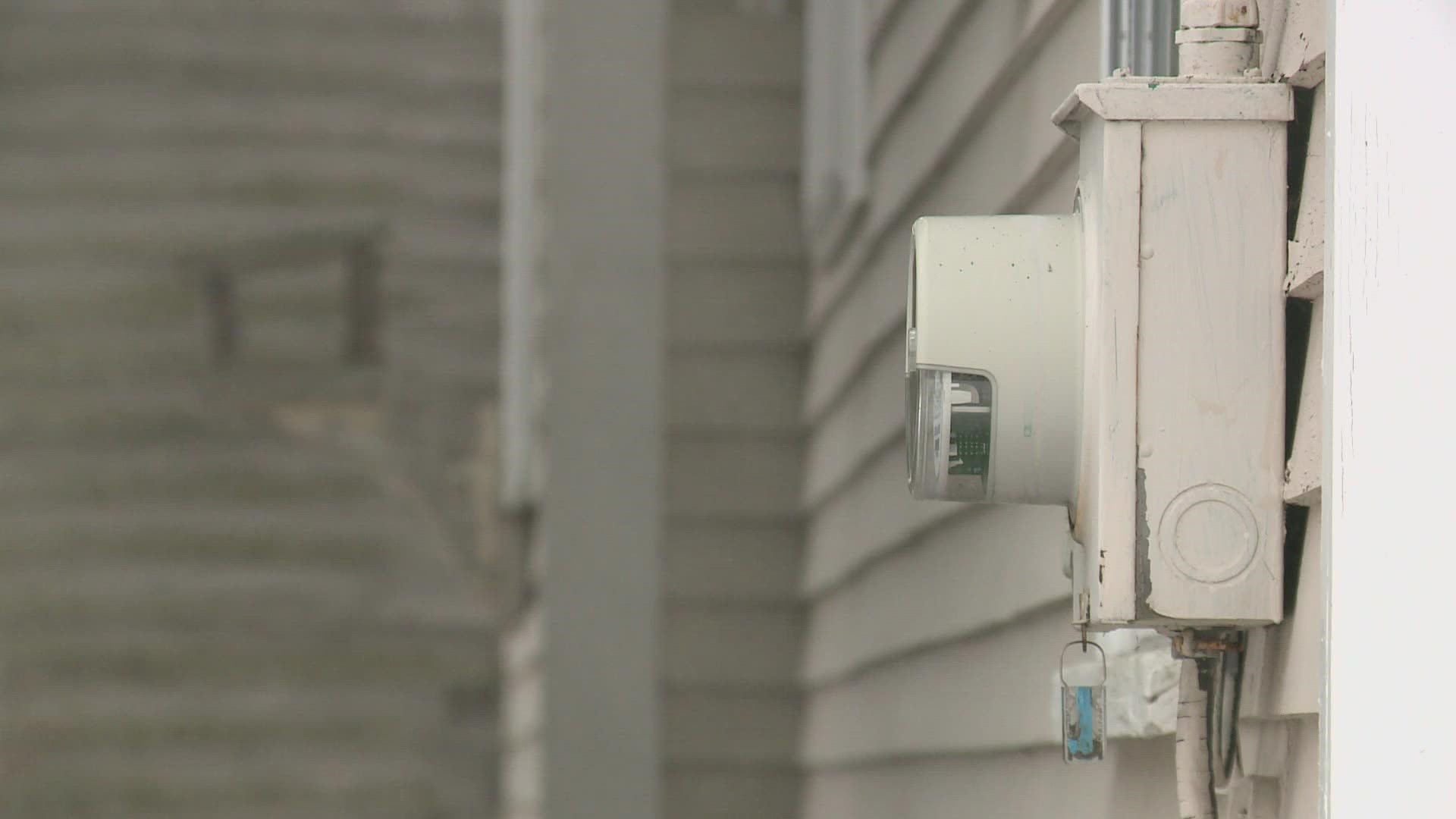AUGUSTA, Maine — Eight days ago, William Harwood was just sworn in as Maine's Public Advocate, but is already on the front line, supporting the governor's new utility bill, An Act to Ensure Transmission and Distribution Utility Accountability.
The Advocate is supposed to be independent of the governor, but in this case, his early support isn't surprising.
Harwood helped write the bill.
Before he was nominated to become Maine's Public Advocate, the longtime utility lawyer worked in the Governor's Energy Office. His experience helped create the proposed law to impose strict new requirements on Maine's two major electric utilities, Central Maine Power and Versant Power.
"I think this is a piece of legislation we need now to protect the ratepayers of Maine," Harwood told NEWS CENTER Maine on Thursday.
The bill has multiple parts but primarily aims to give more clout to the Public Utilities Commission to hold the utilities' feet to the fire and punish them financially if they don't meet expectations.
Among other measures, it would require quarterly reports by the utilities to the PUC to show the companies are meeting required goals for service.
If they don't meet performance goals, the utilities could be fined as much as $1 million, and the PUC would be allowed to take the ultimate step of forcing the utility to be sold if it cannot perform to the agency's required standard.
The bill also requires more frequent financial audits and provides new protection for utility whistleblowers.
The bill follows nearly four years of controversy, primarily focused on CMP over problems with a new billing system and the company's ability to respond to power outages.
The PUC said the utility has since made significant progress at eliminating billing problems and complaints, following lengthy investigations, orders to correct problems, and a management audit.
The Mills Administration said it wants to make sure both CMP and Versant are fully accountable to both the PUC and their customers, which is the goal of the new bill.
But members of Our Power, the group leading a petition drive to force a consumer takeover of both companies, said the bill doesn't go far enough and doesn't do anything to address high costs for transmission and delivery of electricity.
Andrew Blunt of Our Power said the PUC is already able to do many of the things contained in the bill, but it has failed to do so.
"It's just asking an institution to use the same tools that have failed over and over again, hoping for a different outcome," Blunt said. "And we don't think that is an adequate solution."
Harwood defended the bill and said the system of report cards would make a difference.
"We want to have a system where the PUC is monitoring and measuring and holding utilities accountable for lapses in good service. So that is an important piece, and the whistleblower piece is important. And finally, if a utility just can't live up to its responsibilities, the possibility of a forced sale," he said.
There is bipartisan support for the governor's bill in the Legislature, but there also appears to be some bipartisan opposition from lawmakers who want the Our Power goals to become a reality.
The governor vetoed the bill last year that would have started the consumer-owned utility process. However, the new bill would allow a consumer-owned utility to bid on purchasing one of the state's utilities if the PUC ordered divestiture.
The Legislature's Energy, Utilities and Technology Committee will take on the bill, where significant debate is expected.

